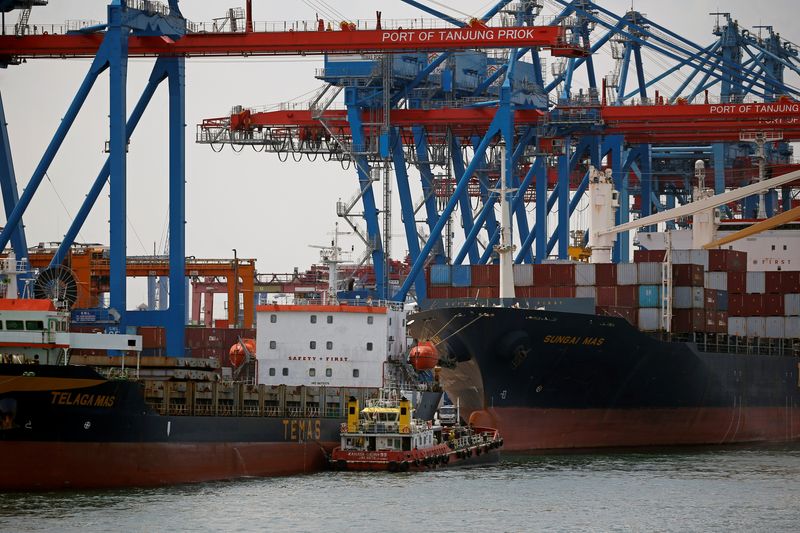By Gayatri Suroyo and Bernadette Christina
JAKARTA (Reuters) - Indonesia booked a larger-than-expected trade surplus of $5.09 billion in June, as palm oil exports surged after the lifting of an export ban a month earlier while coal shipments to Europe also jumped, official data showed on Friday.
A Reuters poll had expected a $3.52 billion surplus for June, following a $2.90 billion surplus in May.
Resource-rich Indonesia has been enjoying an export boom on the back of soaring global commodity prices. Its trade surplus in 2022's first half was the highest on record at $24.89 billion, more than double that of the same period in 2021.
June exports rose 40.68% on a yearly basis to $26.09 billion, beating the poll's 30.26% growth forecast, Statistics Indonesia data showed.
Palm oil and its derivatives contributed $2.74 billion to total shipments amid high global prices, up more than 860% from last month, with a big increase in sales to India, Pakistan, Bangladesh and China. That was a rise of 89% on an annual basis.
Indonesia banned exports of some palm oil products for three weeks from late April.
Its coal exports to Europe have also increased as the impacts of the Ukraine war disrupted Russian coal supply to the region. Data showed $191.2 million in coal exports in the second quarter, up 143% from the previous quarter. No monthly data was provided.
Imports rose 21.98% on an annual basis to $21 billion, with the biggest increase from purchases of raw materials and industrial machinery. The poll had expected 20.10% growth.
Myrdal Gunarto, an economist with Maybank Indonesia, said the surplus should give the central bank confidence to keep interest rates unchanged at next week's policy meeting as it provided "monetary ammunition" for them to stabilise the financial markets.
"We believe the era of high commodity prices will keep continuing until the end of year as a consequence of global economic recovery progress and persistent global geopolitical uncertainty," he said.

Bank Indonesia, one of the world's least hawkish central banks, has kept interest rates at pandemic-era record lows. Central banks of Singapore and the Philippines this week tightened their monetary policy in off-cycle moves to address rising inflation.
(This story removes extraneous words 'last year' from paragraph 7)